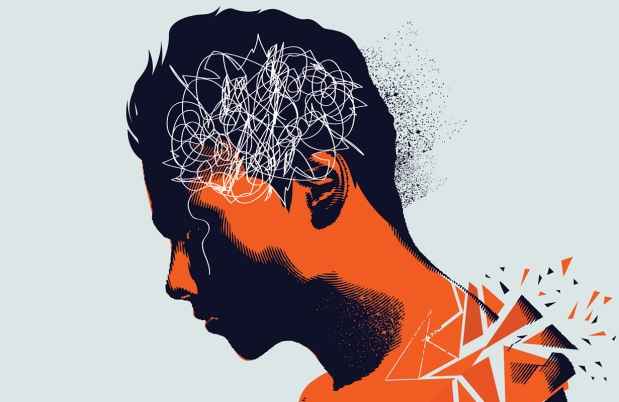People who experience psychiatric illnesses often struggle with substance use disorders as well. For example, those with bipolar disorder experience addiction at six times the rate of people in the general population, while those with depression and anxiety disorders struggle at twice the rate.
Now, thanks to a philanthropic foundation and two generous couples, McLean can offer patients with dual diagnoses an effective, evidence-based treatment that recognizes the inextricable link between psychiatric illness and substance use. McLean’s Co-Occurring Disorders Institute, launched in January 2014, trains clinicians to better identify, assess, and treat addiction in tandem with other illnesses—an approach that has yielded excellent outcomes.
“I have close family members who have had dual diagnoses,” said Cathy Stone, a trustee of the Arcadia Charitable Trust, which provided the initial challenge grant that launched the institute. “Psychiatric illness and addiction are interconnected, and I was impressed with McLean’s unique model of having one clinician treat both.”
Donors Craig and Liz Phillips feel that many people—laypersons and clinicians alike—don’t understand the complex interplay between co-occurring conditions, and they are pleased that their gift has begun to change that. “This is an important problem that is under-recognized and can lead to significant pain and frustration for patients and family members,” said Craig. “Our hope is that these clinician trainings will lead to improved treatment at McLean and beyond.”
In most programs across the country, patients seeking treatment for post-traumatic stress disorder and alcoholism, for example, would have separate clinicians treating each illness. But because the two illnesses play off each other in such complex ways, it is critical that they be treated simultaneously, according to the institute’s John Rodolico, PhD, a master trainer in dual diagnosis treatment.
“If someone’s marijuana addiction isn’t being treated, they may fail to take their medication,” explained Rodolico. “And even if they are taking their anxiety medication, but they’re smoking marijuana five times a day, the medication is not going to work as well and they are not learning to cope with the anxiety.”

By having one clinician treat both illnesses at the same time, care is ultimately more effective. “The reality is that when you have two busy clinicians treating a patient, the communication isn’t always ideal. Or, if you have sequential efforts to treat the two issues, symptoms from one disorder can impede progress in the other,” said Rodolico.
Addiction experts at McLean have long recognized the importance of integrating behavioral health and addiction treatment, but until recently, didn’t have the resources to train staff in this approach. Roger D. Weiss, MD, chief of the Division of Alcohol, Drugs, and Addiction, has conducted several studies that show improved outcomes for people whose co-occurring disorders are treated concurrently, including one focusing on patients with bipolar disorder who were treated using a technique Dr. Weiss developed called integrated group therapy.
Dr. Rodolico is taking this technique and other interventions, such as motivational interviewing, to the front lines at McLean (see Tools of the Trade, below).
His efforts have so far focused on a few programs, including the Klarman Eating Disorders Center, 3East (an intensive residence for adolescents with self-endangering behaviors), Appleton (a diagnostic, treatment and rehabilitative residence for adults with psychotic disorders) and the Obsessive Compulsive Disorder Institute (a residence for adults with severe OCD). He hopes eventually to reach every unit of the hospital.
“An eating disorder can be a highly relapsing, potentially chronic or fatal illness and, in combination with substance abuse, recovery can seem unattainable,” said Patricia Tarbox, LICSW, program director of the Klarman Center. “Every one of our clinicians has now trained with Dr. Rodolico and many have already incorporated these powerful techniques into their work with patients.”
Donors Bob and Mary Lentz believe this initiative makes sense and is indicative of McLean’s strength as a treatment, research, and teaching hospital. “Our gift to the Co-Occurring Disorders Institute was motivated by our overall confidence in McLean,” said Mary. “We’re strong supporters of McLean because it has been a lifesaver for so many patients and families.”
Tools of the Trade: Key Techniques for Treating Co-Occurring Disorders
Integrated group therapy addresses the patient’s psychiatric illness and addiction together, including exploring how one issue affects the other. For example, participants in a typical addictions group would discuss recent substance use, cravings and their attendance at AA or a self-help group. In the integrated format, they may also discuss mood, medication, and essential relapse-prevention skills that apply to both illnesses.
Motivational interviewing (MI) is a way of tapping into a person’s motivation to change. The basic skills of this technique are known by the acronym OARS: open questions, affirmation, reflective listening, and summarizing. While the therapist plays an important role in MI, it is rooted in the belief that patients know themselves better than anyone else, and are therefore best positioned to effect change in their lives.
Media Requests
Journalist or member of the media? We are available 24/7 for media requests.



